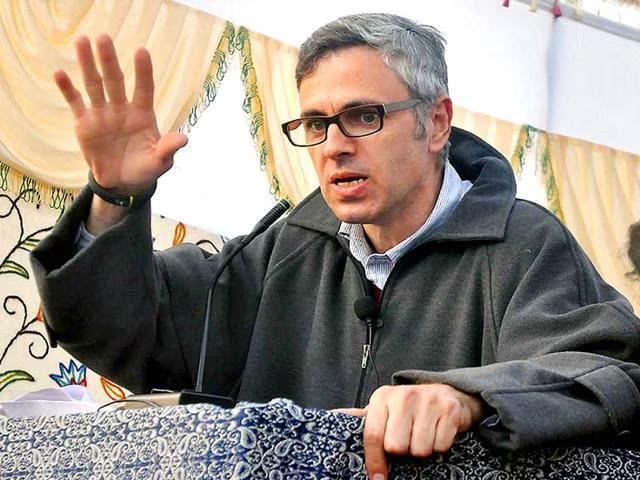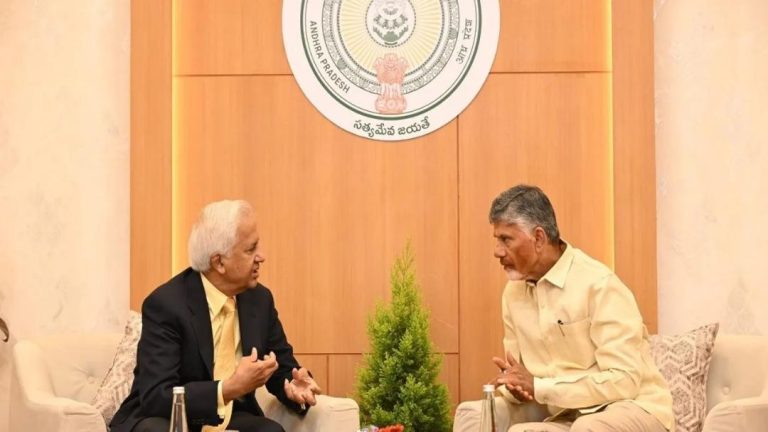
US Doesn’t Care About Any Other Country: J&K CM Omar After Trump-Pak Army Chief Lunch
The recent luncheon meeting between US President Donald Trump and Pakistan army chief General Asim Munir has raised eyebrows worldwide, with many questioning the implications of this move. Amidst the growing tensions between India and Pakistan, the sudden invitation has sparked a heated debate. Jammu and Kashmir Chief Minister Omar Abdullah, too, weighed in on the issue, expressing his disappointment and frustration with the US administration’s lack of regard for other countries’ sentiments.
In an exclusive interview, Omar Abdullah stated, “We can’t dictate to the US President whom he should invite for dinner. We used to think the US President was our close friend, and he’d respect that, but the US does what benefits them, they don’t care about any other country.” His sharp remarks reflect the widespread dismay and disillusionment among many nations with the US’ perceived lack of commitment to its allies and friends.
The meeting between Trump and General Munir has been interpreted as a significant diplomatic coup for Pakistan, which has been struggling to maintain its influence on the global stage. The Pakistan army chief’s visit to the White House comes at a time when the country is facing internal turmoil and external pressures, including the ongoing conflict in Afghanistan and the Indo-Pak tensions over Kashmir.
India, in particular, has been vocal about its concerns, with many viewing the meeting as a tacit endorsement of Pakistan’s stance on Kashmir. Omar Abdullah’s comments reflect this sentiment, highlighting the perceived double standard in the US’ approach to international relations. “The US is not willing to take sides in the conflict, but they’re willing to take sides when it benefits them,” he said.
This sentiment is echoed by many experts, who argue that the US’ actions in the region are driven by its own strategic interests, rather than a genuine commitment to promoting peace and stability. The US has historically maintained a delicate balance in its relationships with India and Pakistan, often walking a tightrope to avoid antagonizing either side. However, some argue that this approach has led to a perception of inconsistency and a lack of credibility.
The optics of the situation are also significant, as Trump’s meeting with General Munir has sparked concerns about the US’ willingness to engage with extremist groups and regimes. Pakistan has a history of supporting terrorist organizations, and its military has been accused of providing safe havens to militant groups. The US’ decision to host the Pakistan army chief has raised questions about its willingness to overlook these concerns in pursuit of its own interests.
Omar Abdullah’s remarks also highlight the perceived lack of empathy and understanding on the part of the US administration when it comes to the concerns and sensitivities of other countries. “We used to think the US President was our close friend, and he’d respect that,” he said, reflecting the widespread feeling of disappointment and betrayal among many nations.
The issue is not limited to the US-Pak relationship. It has broader implications for the global balance of power and the way nations interact with each other. As the world becomes increasingly interconnected, the need for diplomacy, cooperation, and mutual understanding has never been more pressing. The US’ actions, however, seem to suggest a more isolationist approach, prioritizing its own interests over the concerns of other nations.
In conclusion, Omar Abdullah’s sharp response to Trump’s decision to host the Pakistan army chief reflects the growing disillusionment among many nations with the US’ perceived lack of commitment to international relations. The meeting has sparked a heated debate, highlighting the need for greater transparency, accountability, and empathy in international diplomacy. As the global community navigates the complexities of the 21st century, it is essential that nations prioritize mutual understanding and cooperation, rather than seeking to advance their own interests at the expense of others.






